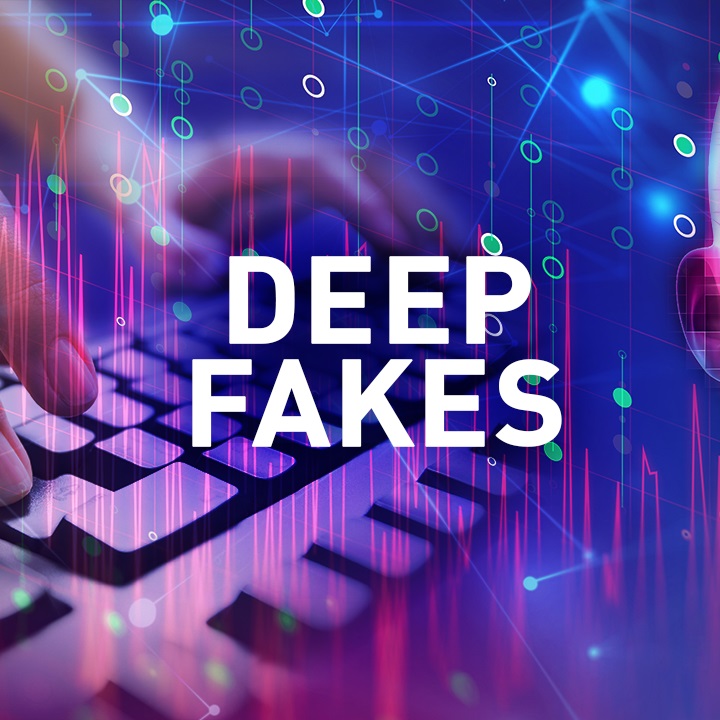
Navigating the treacherous terrain of deepfake technology in the realm of elections demands a comprehensive approach from stakeholders worldwide. As the prevalence of AI-generated misinformation escalates, governments, technology companies, and civil society must collaborate to mitigate its impact. The exponential growth of deepfakes poses multifaceted dangers to democratic processes, necessitating urgent action to safeguard electoral integrity. From regulatory frameworks to technological innovations and public awareness campaigns, a concerted effort is imperative to confront this formidable threat. Only through collective vigilance and proactive measures can we uphold the fundamental principles of democracy in the face of evolving technological disruptions.
The advent of deepfake technology has ushered in a new era of uncertainty in electoral landscapes worldwide. As nations gear up for the largest global election year in history, the specter of AI-generated misinformation looms large, threatening to undermine the very foundations of democracy. From manipulated videos of political leaders to orchestrated campaigns of disinformation, the proliferation of deepfakes poses unprecedented challenges to electoral integrity. Despite concerted efforts by governments and technology companies, the Asia-Pacific region remains particularly vulnerable to the insidious influence of deepfakes due to regulatory gaps and inadequate technological infrastructure. Addressing this looming crisis demands a coordinated approach from all stakeholders, encompassing robust regulatory frameworks, technological innovations, and public awareness initiatives.
In the run-up to the Indonesian elections on February 14th, a deepfake video featuring the late Indonesian president Suharto endorsing a political party garnered a staggering 4.7 million views on various platforms. This incident is just one among many, highlighting the growing prevalence of deepfake technology in shaping political discourse. In Pakistan, a deep fake of former Prime Minister Imran Khan emerged during national elections, while voters in the US state of New Hampshire were subjected to a manipulated video purportedly featuring President Joe Biden discouraging participation in the presidential primary.
With 2024 poised to be the largest global election year in history, concerns about the proliferation of deepfakes have reached a fever pitch. According to a report by Sumsub, the number of deepfakes worldwide surged by tenfold from 2022 to 2023, with the Asia-Pacific region witnessing a staggering 1,530% increase during the same period. This exponential rise in deepfake technology poses significant challenges for governments and technology companies alike in combating the spread of misinformation.
Simon Chesterman, Senior Director of AI Governance at AI Singapore, warns that Asia remains ill-equipped to address the threat of deepfakes effectively. The lack of robust regulation, technological infrastructure, and public awareness campaigns leaves the region vulnerable to malicious actors seeking to manipulate elections for their gain. Moreover, the 2024 Global Threat Report by cybersecurity firm CrowdStrike highlights the heightened risk of nation-state actors, including those from China, Russia, and Iran, engaging in misinformation campaigns to destabilize democracies worldwide.
The proliferation of deepfakes presents multifaceted dangers to democratic processes. Beyond polluting the information ecosystem and hindering voters’ ability to make informed decisions, deepfakes have the potential to erode public trust in electoral outcomes. Carol Soon, Principal Research Fellow at the Institute of Policy Studies in Singapore, underscores the role of domestic actors, including political parties and extremist groups, in amplifying the spread of deepfake content to sway public opinion.
Addressing the challenges posed by deepfakes requires a coordinated effort from various stakeholders, including social media platforms and technology companies. In February, leading tech companies, including Microsoft, Meta, Google, and Amazon, pledged to combat the deceptive use of AI in elections through joint initiatives. However, the efficacy of these measures hinges on their implementation and enforcement across diverse platforms.
Transparency and accountability are essential in mitigating the impact of deepfakes on electoral integrity. Tech companies must adopt stringent measures to detect and prevent the spread of manipulated content while empowering users with tools to verify the authenticity of information. The Coalition for Content Provenance and Authenticity (C2PA), comprising industry giants like Adobe, Microsoft, Google, and Intel, has introduced digital credentials to provide viewers with verified information about content origins and authenticity.
While technological solutions play a crucial role, educating the public about the dangers of deepfakes is equally paramount. Heightened vigilance and critical thinking among users can help stem the tide of misinformation and safeguard the democratic process. As the threat of deepfakes continues to evolve, collective action and collaboration among governments, technology companies, and civil society are imperative to uphold the integrity of elections worldwide.
In the face of mounting threats posed by deepfake technology, safeguarding electoral integrity has emerged as a paramount concern for nations worldwide. While technological advancements offer potential solutions, they must be complemented by proactive measures and collaborative efforts across sectors. From stringent regulatory frameworks to transparent content authentication mechanisms, a multifaceted approach is essential to combat the proliferation of AI-generated misinformation. Moreover, empowering citizens with critical thinking skills and media literacy is crucial in fortifying defenses against deepfake manipulation. As we confront the challenges of the digital age, collective action and unwavering commitment to democratic values are indispensable in preserving the sanctity of elections and upholding the principles of democracy for generations to come.
